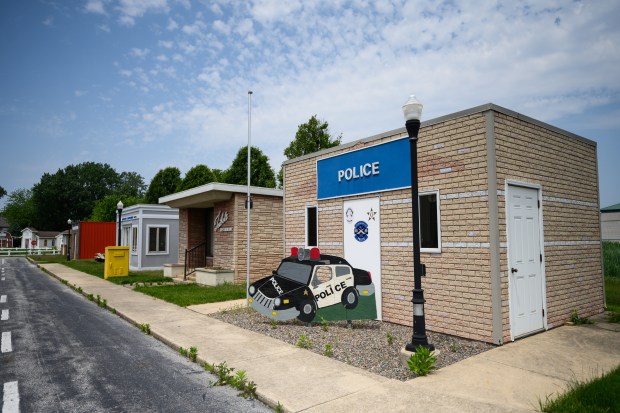In a world where data is collected on nearly everything, Will Johnson is working to teach his employees and others how to interpret information outside the box.
Johnson, an Evanston resident and CEO of market research company The Harris Poll, has lived with dyslexia for most of his life but credits it with his ability to see data differently than others. He was diagnosed in the first grade after his teacher at Crow Island School in Winnetka noticed a disconnect between his reading and speaking abilities.
“I still can’t spell,” he joked. “I just felt like my brain worked differently, not that there was a deficiency. … I view it as really a competitive advantage for me.”
The Harris Poll was started 60 years ago by Lou Harris, the first presidential pollster who served under John F. Kennedy.
Since taking over at The Harris Poll in 2017 and seeing the rise in the use of artificial intelligence in the job market, Johnson believes it is more important than ever that people are able to understand and interpret data.
He has gone on to train his team of 200 pollsters to “think like a dyslexic” by continually evaluating data quality and reliability while searching for gaps in data to see beyond what is being said into what isn’t.
Johnson believes these tactics can benefit the general public by teaching them to have a more critical lens when looking at a wide range of data while also preparing young people to enter a corporate world run by data.
“We’ve never had more data as a society or access to it. We’re overwhelmed,” Johnson said. “You need to be the best filter yourself to sift through that data … no one is going to do it for you.”
His tactics can be used to interpret election data as well, a useful skill as we move past the primaries in another election year. Big tech companies including Adobe, Amazon, Google, IBM, Meta, Microsoft, OpenAI and TikTok released framework they planned to utilize to combat AI-generated election misinformation on their platforms, according to reports by The Associated Press.
The biggest steps to getting a solid understanding of data, according to Johnson, are slowing down, looking into where and who that data is coming from and looking beyond the upfront information into the reasons and motivations behind those results.
This became helpful when looking at data related to the COVID-19 pandemic. Harris Poll data from January 2022 showed that 60% of seniors believed everything should remain open during future surges. This sharply contrasted other generations who never broke the 50% line. Seniors were also the least likely to continue masking after mandates were lifted.
Johnson said this felt at odds with the assumption people had that it would be younger generations who were more eager to get back to a sense of normalcy, including going out and being social. This also seemed counterintuitive as the elderly are at an increased risk if they catch COVID-19 compared to younger generations.
“I love when I see something in data that’s sort of counterintuitive,” he said. “It kind of gets your mind going.”
He says being naturally curious is helpful too but issues can arise when people aren’t at that point.
“I have a lot of faith in people.” he said. “I think people are actually a lot closer together on many issues than we feel. At the end of the day, I’m hopeful.”




